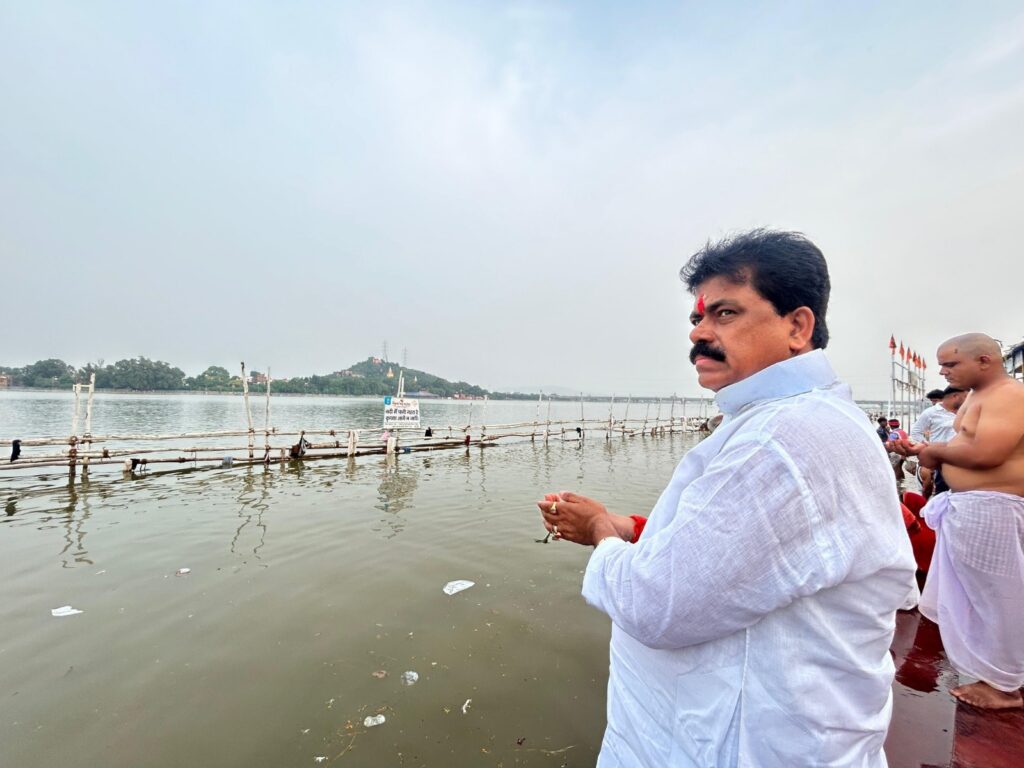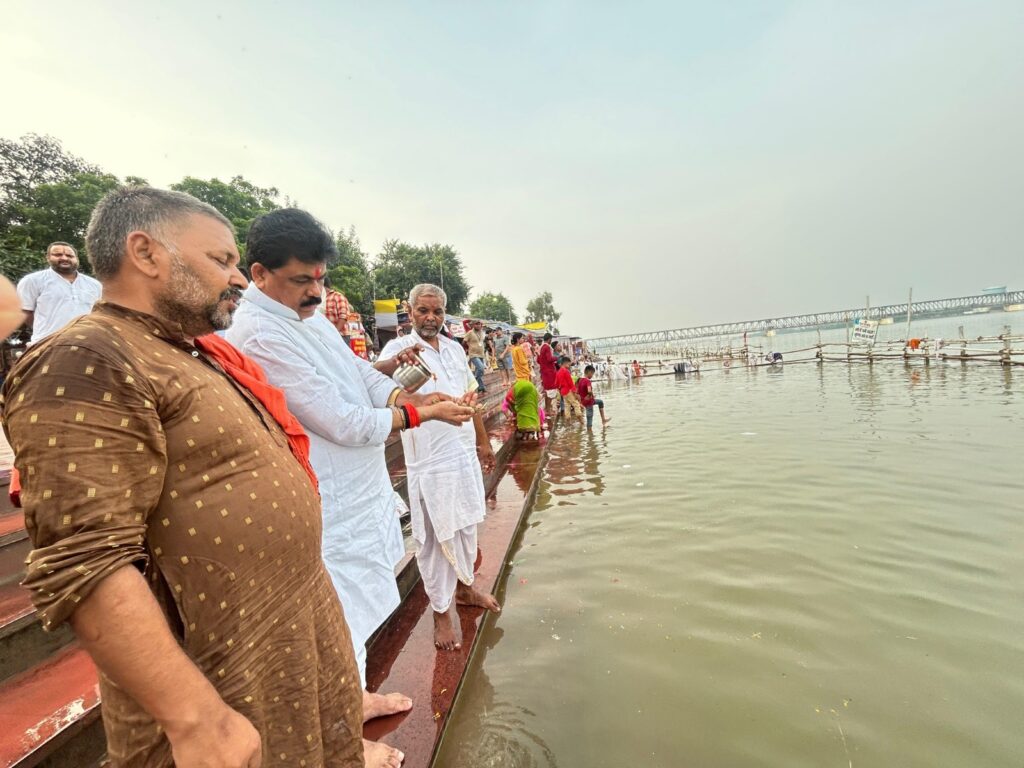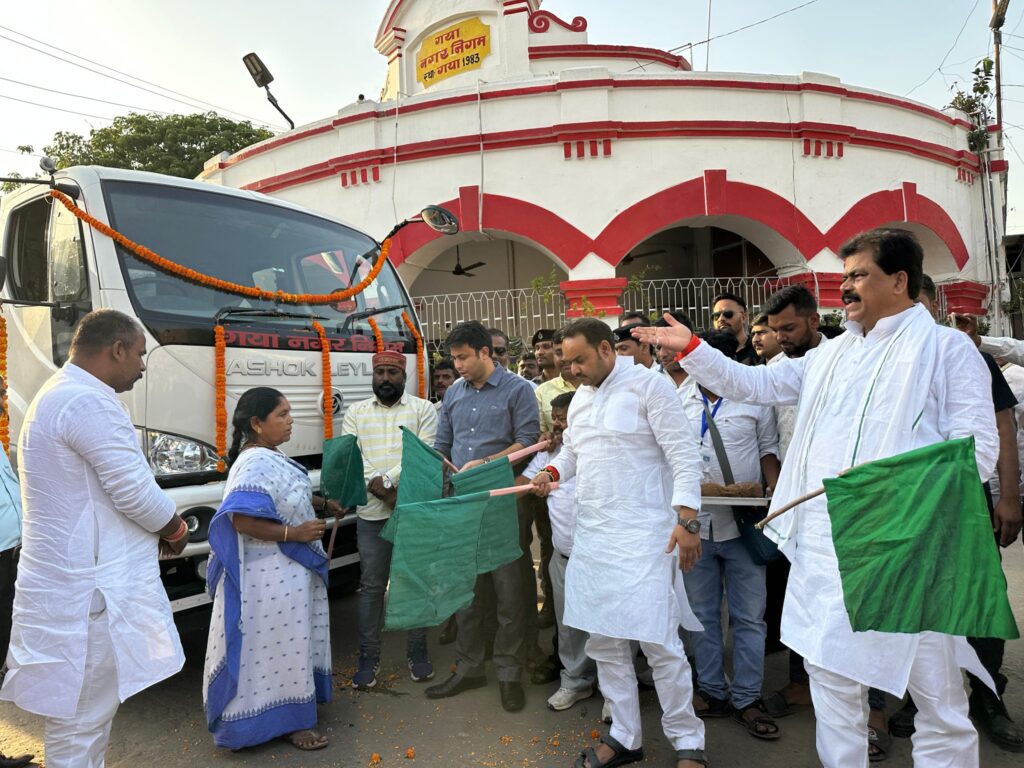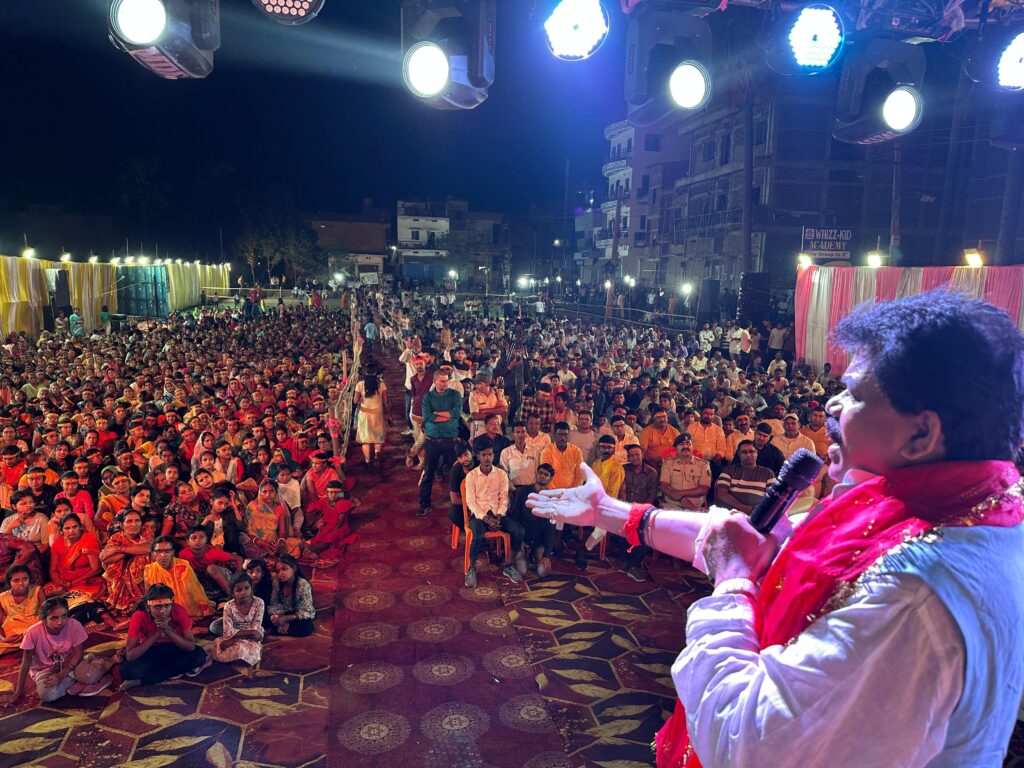
In the heart of Bihar lies the ancient city of Gaya, a spiritual haven where tradition meets modern governance during one of India’s most sacred rituals Pitru Paksha. Every year, lakhs of devotees from across the country and even abroad arrive here to perform Pind Daan, a ritual believed to bring salvation to departed souls and relieve families from ancestral curses (Pitra Dosha). In 2024, the sacred Pitru Paksha Mela witnessed a remarkable transformation, largely due to the visionary leadership of former Deputy Mayor Mohan Shrivastava.
This year’s fair not only catered to the spiritual needs of millions but also set a new benchmark for civic management, cleanliness, and public infrastructure. The Gaya Municipal Corporation, under Srivastava’s guidance, turned this religious congregation into a model of effective urban administration during a high-footfall event.
The Spiritual Significance of Pitru Paksha in Gaya
Pitru Paksha is deeply revered in Hindu traditions, marking an important period dedicated to honoring and remembering one’s ancestors. Spanning 16 lunar days, it is dedicated to paying homage to ancestors. The rituals conducted during this period, especially in Gaya, are considered supremely powerful. According to the Garuda Purana and other sacred scriptures, offering Pind Daan in Gaya ensures the moksha (liberation) of ancestors.
The city becomes a spiritual epicenter during this fortnight, buzzing with chants, priests performing rituals, and teary-eyed families hoping for peace for their departed loved ones. However, managing such an influx in a city with limited infrastructure is no easy task.
A Leadership That Stood Out: Mohan Shrivastava’s Vision

While Gaya has always been spiritually vibrant, Mohan Srivastava’s leadership infused it with a fresh sense of administrative efficiency and civic consciousness. The 2024 Pitru Paksha Mela stood out for its improved organization, cleanliness, and safety, owing to the well-planned measures introduced by the Gaya Municipal Corporation.
Srivastava’s focus wasn’t just on managing crowds but on enhancing the pilgrim experience. He envisioned a fair that retained its spiritual essence while embracing the best practices of urban governance.
Cleanliness at the Core: Sector-Wise Sanitation Planning

One of the biggest challenges during Pitru Paksha is maintaining hygiene, especially around ritual sites like the Vishnupad Temple and the Falgu River banks. This year, under Srivastava’s direction, the entire fairground was divided into five zones and 61 sectors to streamline sanitation efforts.
- Over 1,200 sanitation workers were deployed daily.
- More than 100 sanitation vehicles including garbage trucks and water sprinklers operated nonstop.
- More than 150 tons of waste were effectively gathered and managed during the event.
The focus was on daily waste disposal, keeping ritual sites clean and accessible, and ensuring that the sacredness of the rituals remained unmarred by filth or chaos.
Lighting Up Faith: Over 4,000 Lights Installed
Security and visibility play a crucial role in large religious events, especially during the early morning and late evening rituals. This year’s Pitru Paksha Mela saw an unprecedented upgrade in lighting infrastructure:
- 4,000+ street lights were installed throughout the fair area.
- High-mast lights and spiral decorative lighting added both functionality and aesthetics.
- Devotees expressed appreciation for the well-lit pathways, which enhanced their sense of safety and convenience during rituals held at odd hours.
This initiative not only reduced the risk of accidents but also symbolically illuminated the city’s spiritual ambiance.
Connectivity & Crowd Management

Understanding the challenges posed by the influx of pilgrims, the corporation ensured smooth connectivity and mobility within the city:
- Temporary road diversions and parking areas were marked clearly.
- Emergency services, including ambulances and disaster response teams, were made available across all zones.
- Volunteers and municipal staff were strategically placed to assist and guide visitors.
This multi-layered approach to crowd management ensured that devotees could focus on their spiritual obligations without logistical stress.
A Sustainable Vision for the Future
What truly sets this year’s Mela apart is the underlying sustainability in planning. Efforts were not just about temporary beautification but about long-term civic upgrades:
- Plans are underway to make the entire ritual circuit permanently waste-free.
- Discussions have begun around solar lighting, permanent waste disposal units, and mobile sanitation pods.
These steps could transform how Gaya handles not only Pitru Paksha but other large-scale spiritual gatherings throughout the year.
Public Response and Cultural Impact
The public response has been overwhelmingly positive. Devotees, local businesses, and spiritual leaders alike praised the transparency, planning, and execution of municipal operations. Many expressed a renewed sense of pride in Gaya not only as a city of immense religious importance but also as a beacon of modern civic responsibility.
Conclusion: A Sacred Tradition, A Modern Legacy
The successful management of Pitru Paksha Mela 2024 in Gaya is a shining example of how traditional values and modern governance can go hand in hand. Former Deputy Mayor Mohan Shrivastava’s leadership has not only brought administrative excellence but also deep respect for the sanctity of this spiritual tradition.
In a country where millions seek spiritual fulfillment, it is heartening to see city leaders honoring faith while ensuring dignity, cleanliness, and efficiency. The Pitru Paksha Mela 2024 will be remembered not only for the rituals but for the meaningful civic strides it made a true model of faith-led governance.
official website:- mohanshrivastava.com

